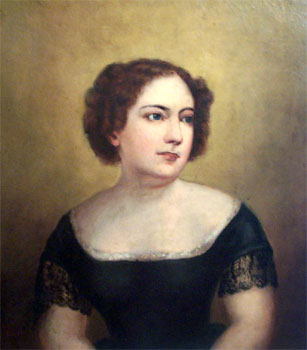More than a century following her death, after being ignored, oppressed, and–literally–erased from history, Anna Ella Carroll is finally getting the last word. Carroll was an intriguing and atypical 19th century woman who emerged from the male-dominated realm of war, politics, and diplomacy.
As a key military strategist, Presidential advisor, and “unofficial” member of Abraham Lincoln’s Cabinet, Carroll was probably the most powerful woman in American during the Civil War. Biographers note that she could “scheme, connive, and maneuver as well as any man.”
Carroll was born at Kingston Hall in Somerset County, and later lived in Dorchester County. She was a war spy, politician, Unionist writer, pamphleteer, author and legal expert. She is credited with helping to prevent Maryland’s secession from the Union. President Lincoln sent her, accompanied by an army officer, to observe and report on the War on the western front. Her reports resulted in major military strategies that eventually doomed the Confederacy and ended the intervention of the European nations on the behalf of the South.
Carroll is credited with changing the direction of the Civil War by devising the crucial Tennessee River Plan. The plan laid the groundwork of Gen. Ulysses S. Grant’s successful campaign against the Confederates that hastened the end of the war. This plan changed the invasion route from the Mississippi to the Tennessee and Cumberland Rivers, resulting in the first two real victories for the Union. Fearing that Union generals and soldiers would not follow a plan devised by a woman civilian, Lincoln and his Cabinet kept Carroll’s authorship a secret; thus, the Tennessee River was the “lost river.” Carroll also presented legal arguments and opinions as to why Lincoln could issue the Emancipation Proclamation and detailed his war powers authority.
Evidence exists that Lincoln had intended to honor Carroll after the war with a title and pension equal to that of a Major General. However, after Lincoln was assassinated, Carroll’s male counterparts, assisted by General Grant himself, conspired to take credit for her successes and totally erase her from history.
When Carroll died in 1894, deprived of honor, title, pension, and acknowledgement for her accomplishments, her life story was already considered a model for the Women’s Suffrage Movement. Dorchester County school marms began including Anna Ella Carroll as part of their Civil War history lessons. These lessons were taught in Dorchester County schools well into the 1970s, with that community being the only one in the nation preserving Carroll’s memory. Although on August 1958, August 29 was proclaimed Anna Ella Carroll Day in Maryland, she has been out of the historical limelight since.
